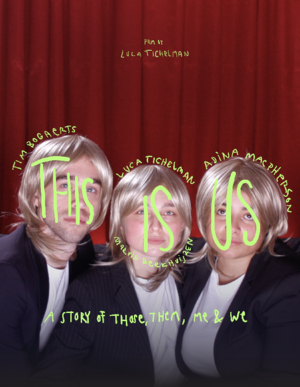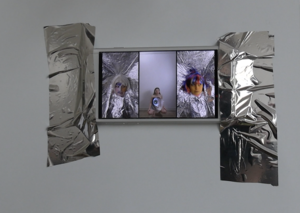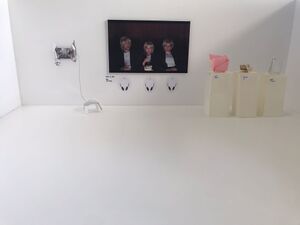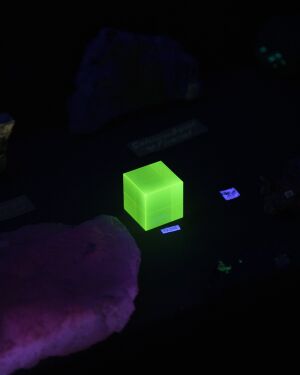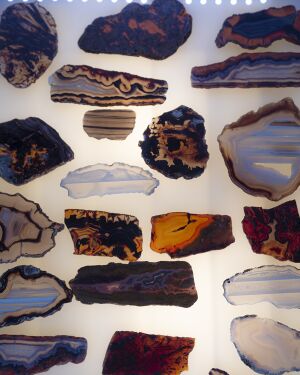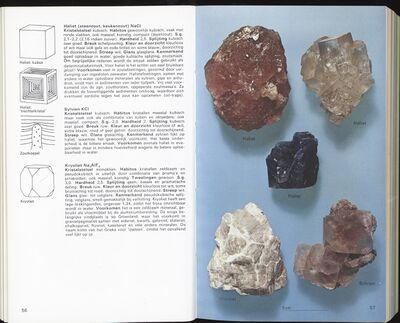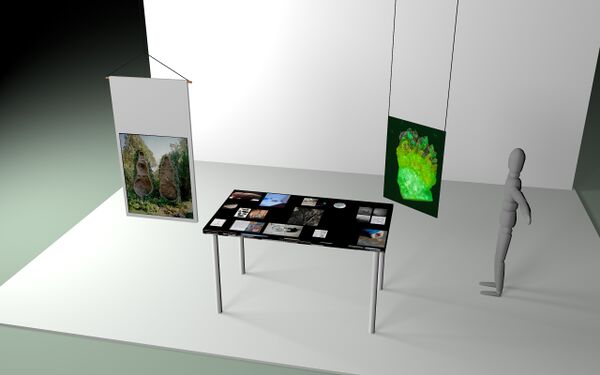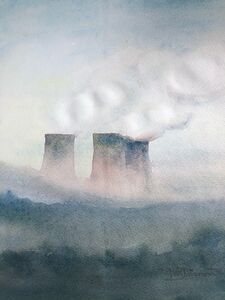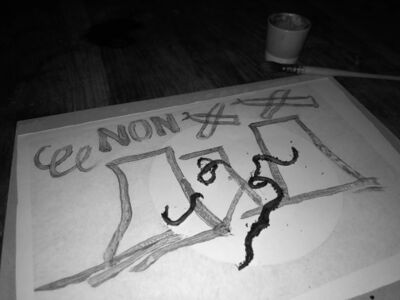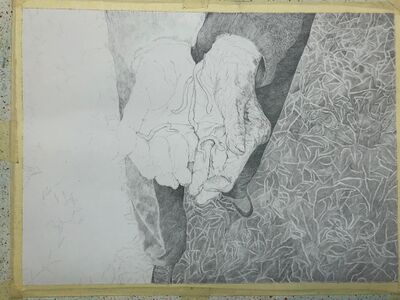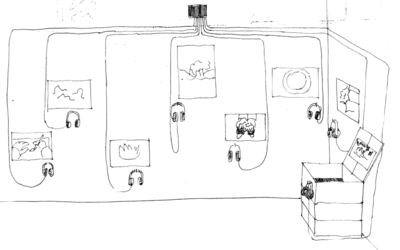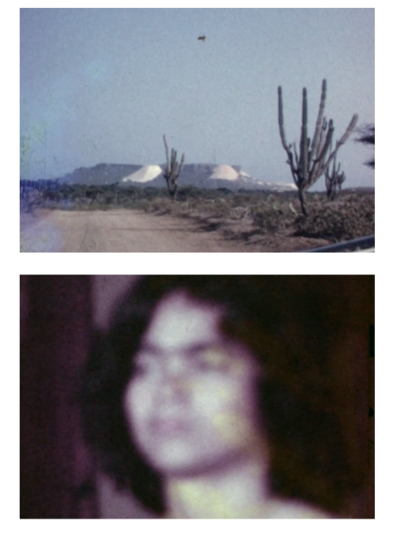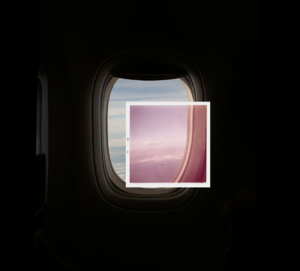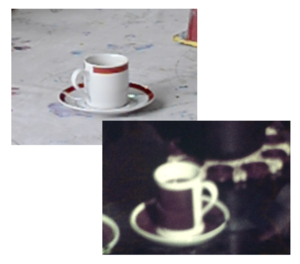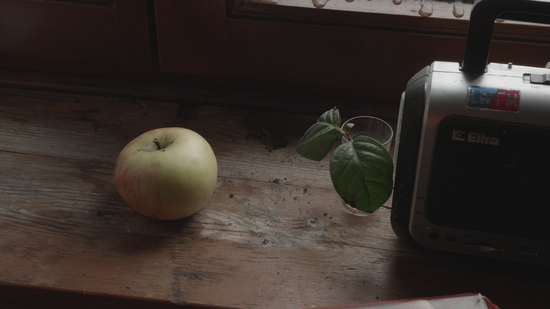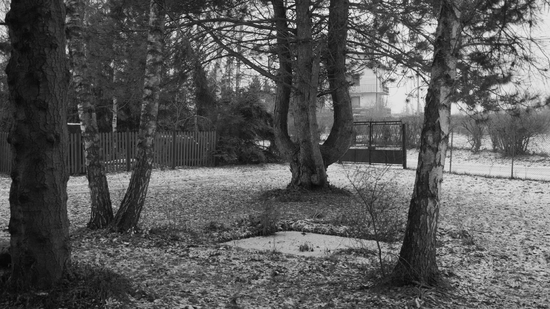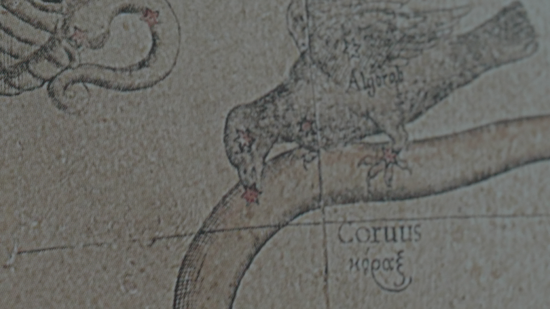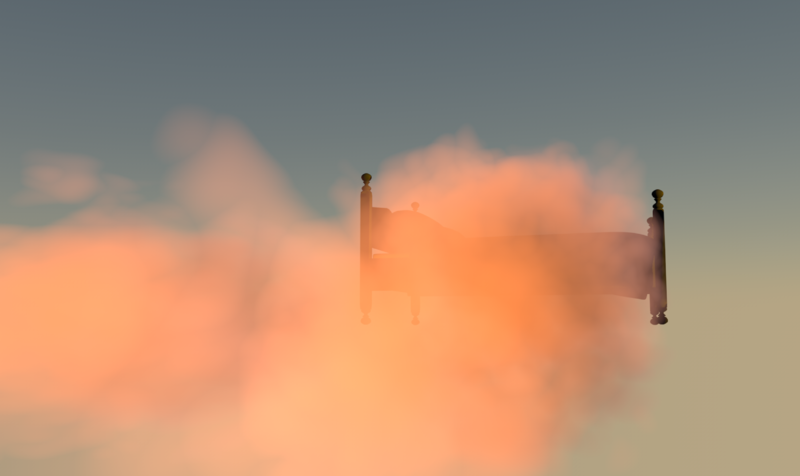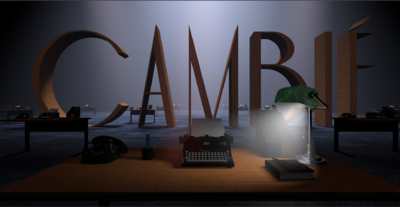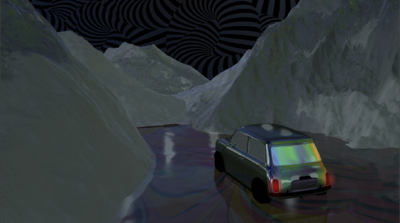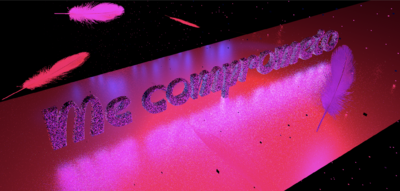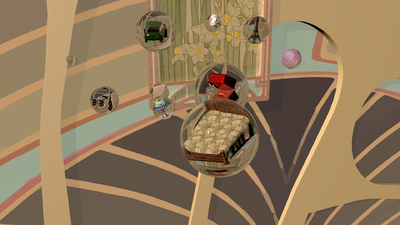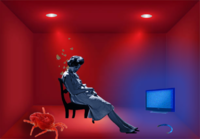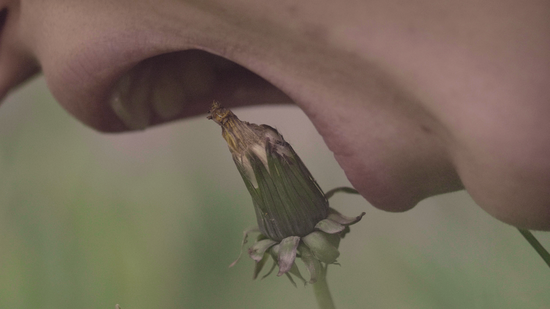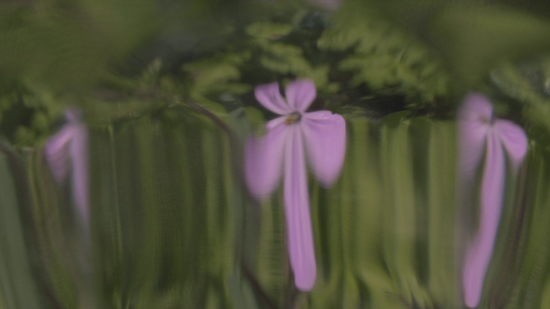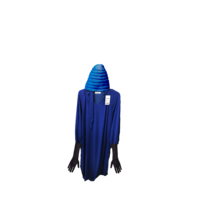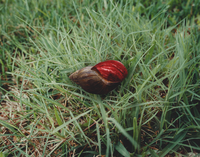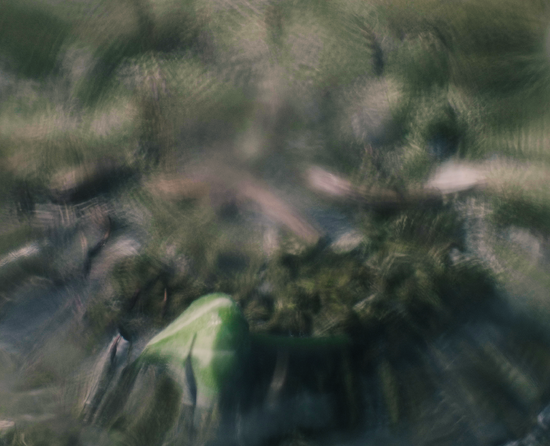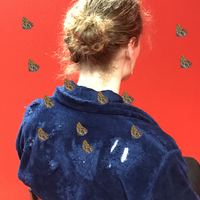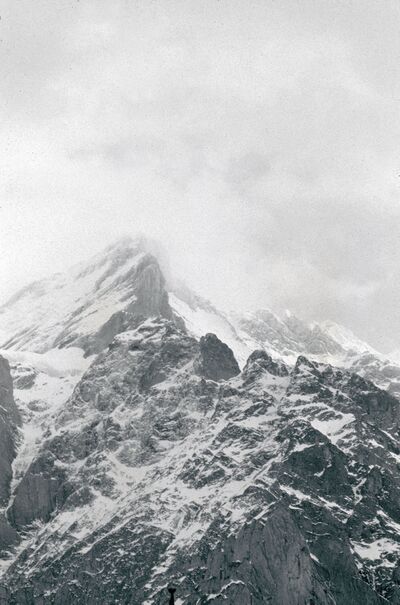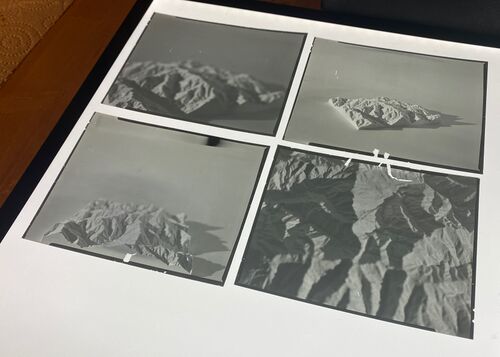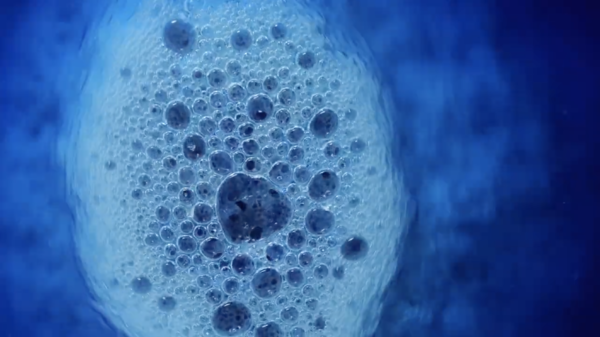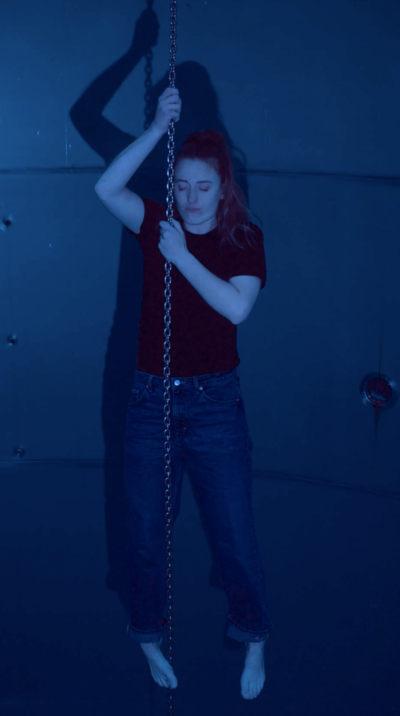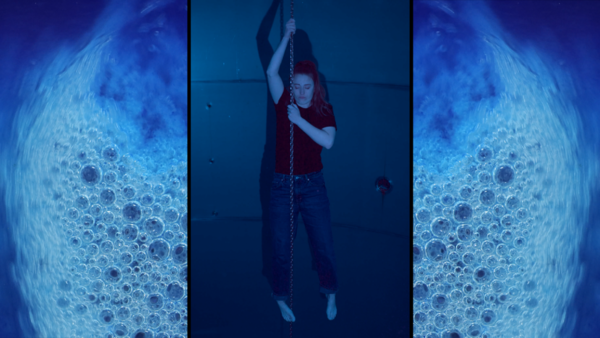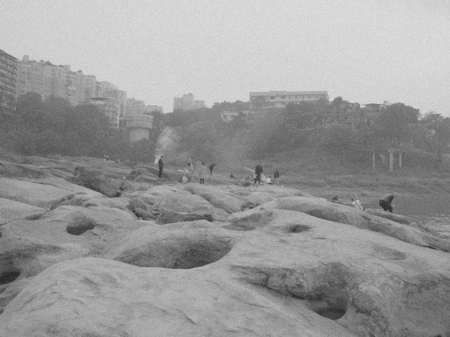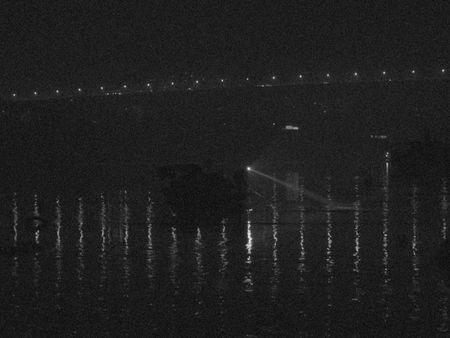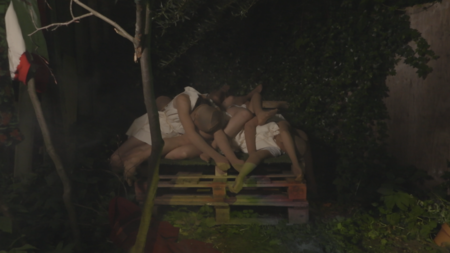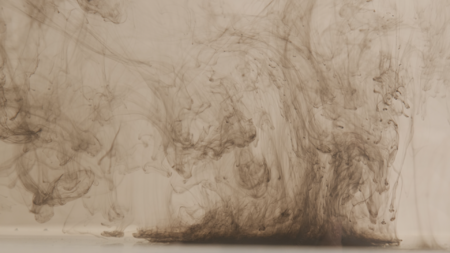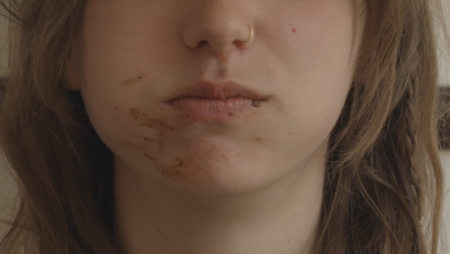LB2 Graduation 2022 and V2 + TENT
LB2 Graduates 2022 and V2_ + TENT
About the collaboration between LB2 graduates of 2021, V2_ and TENT. Florian Weigl, curator: +31 6 29 29 1647
- Overview of event and proposed planning: .
Student assistants
Space for the names and contact details of two students who will be the liaison between LB2 and V2_/TENT.
Adèle Grégoire
adele.gregoire@insas.be
0032 498691797
Martin Osowski
mosowski224@gmail.com
+31622430984
Alumni proposals
- Please add your name, email address and phone number plus a short project description, bio and no more than three images (see previous year's page for examples).
Add your personal details here.
Project description
Add your project description here.
Bio
Add the short biographical note here.
Images
Luca Tichelman
Lucatichelman@gmail.com
+31638104317
Project description
Two short videos entitled THIS IS US and LOOK A LIKE / LUC A LIKE. These will be accompanied by three miniature sculptures named; SMALL THINKS MATTER. These projects are in relation to topics such as how we as humans seek to connect with one another and therefore ourselves - The endless surge for how we are and what role our family members play in defining that.
In THIS IS US we see a group of three people in three different scenes. Every scene shows how the group wants to be identified as a whole. “I belong therefore I am “. THIS IS US has a non-linear dramaturgy and can be seen as a collage of moments.
LOOK A LIKE / LUC A LIKE is a digital triptych; on each screen we see Luca being dressed up in a different costume doing small gestures. This work is an image-based resurge into the different characters one person can embody. “By imitating many others I may find a self “
SMALL THINGS MATTER Is a series of three miniature moving sculptures. Every sculpture refers to something my mother ever did or said that had an impact on me. This work is in production and finishes on 4 June, therefore I have no material I can show before but to have an idea I'm sending a link of a previous work that is in line with this new one; https://lucatichelman.nl/fashionclash-campange-beeld
needs:
- white space
-3 white pillars measurements 33x33x103 with hols on top and below at the back for the cable of the machine.
-1 flat big tv screen measurement around 60 inch 4K/60hertz quality with the option of plying the video in an endless loop
-3 headphones connected to the screen
-3 small hooks to hang the headphones on just under the screen
-iphone if not i can use my own , battery
- naam bordjes
Bio
Luca Tichelman, film-maker and performer, graduated in 2017 from the Toneelacademie Maastricht (Institute for Performative Arts Maastricht). She aims to create a magical, absurdist world that appeals to the imagination by using minimal resources and seeks to maintain a sense of humor in serious subjects. Luca is currently enrolled in the master’s degree program ‘Lens-Based Media’ at the Piet Zwart Institute in Rotterdam, the Netherlands.
http://www.lucatichelman.nl/ https://www.instagram.com/luca_tichelman/
Images
Alecio Ferrari
studio.alecioferrari@gmail.com
+39 3488519391
Project Description
The project Slices of Dust will be a photographic research into the minerals and gemstones culture, its collection, conservation and trade in the Netherlands.
Slices of Dust will focus on rocks and stones in order to question the ambivalent relationship of man towards nature, this intends to be a continuation and a deeper dive into my ongoing research on Nature and Culture dualism.
The project and the research will be executed through means of photographs, collections of visuals, documents and illustrations.
The story that I would like to tell is the journey of gemstone: which is the process that brings a stone from its birthplace (the mountain or the underground) all the way to our necklaces or rings?
Slices of Dust will take a particular emphasis: We extract stones and minerals from their natural context and place them into our cultural context assigning them new shapes, functions and value.
Bio
Alecio Ferrari, born in Milan – Italy in 1995, Alecio Ferrari is a photographer based in Rotterdam.
With a BA in Graphic Design from Falmouth University, UK, his photographs swing between still life compositions, documentary and portraiture. His portfolio is a mixture of fervent aesthetics,
developed from a wide experience in visual arts and communication fields, aiming the creation of both commissioned and personal works with narrative at their core.
His personal practice gravitates around the themes of nature < > culture dualism and the ambivalent relationship of man towards nature. His imagery is conceived as a hybrid of real and imaginary, playing around with both staged and un-staged scenarios.
Images
Adèle Grégoire
adele.gregoire@insas.be
0032 498691797
Project description
"Of all places, the best nights were found in the garden of old ladies" is a story where many encounters occur.
This time, a community of nomadic ensenia foetidia worms, also called red worms, stumble upon a couple of old ladies and a drawing.
I'll expose you to the moments they shared together through an audio visual installation made of drawings, sound surrounded by found, reclaimed, recycled, or composted material.
Images and technical specs:
the nuclear plant in Tihange, Belgium - Marie-Rose Dotremont
2019, Watercolor on paper
Marie-Rose's drawing meets worms - collaborative drawing by Adèle Grégoire and the worms
2022, graphite, earth and cutaneous mucus on paper
worms rescue - collaborative drawing by Adèle Grégoire and Marie-Rose
2022, graphite on paper
potential installation view
needs:
-8 drawings, with hand made frames
-8 channel sound (with something like that by example: http://www.waveplayer-systems.com/)
-8 long mini-jack cables
-8 headphones
-8 headphones holder made of found material
-daylight or punctual light
Bio
Adèle Grégoire
After studying drawing in la Cambre and cinematography in L'INSAS in Belgium,
I've been searching for ways to combine these two practices in the Lens-based media department of the Piet Zwart Instituut in Rotterdam.
At the moment, my practice explores speculative narratives depicting the possible encounters of different kinds of earthly beings and things through writing, drawing, and sound.
I like to say that I'm an observer constantly seeking to learn and unlearn through looking at my surroundings.
I try to work with love and attention fostering collaborative processes, in order to capture briefly the anxieties crossing my path, traversing me and the nearby.
In my work I want to acknowledge these anxieties setting them in a context, then let them continue their journey through matter and time.
Kamali van Bochove
kamalivanbochove@gmail.com +31 6 83 65 89 75
project description
on a small island, in a big island (2022)
“The power to weave a story out of the dust, to narrate a story that the fragments support though others might fabricate a different narrative out of the same chaotic heap of fragments. The archive then is also a place of dreams,” says Steedman (2002) .
My grandfather’s archive of (moving) images is a place of dreams. In this chaotic heap of fragments I have found a possibility for places, people and parts of ourselves to not just meet and part – again and again – but to stay together.
A short film that explores a family history of coming and going, seen through glimpses and intimate details my grandfather has captured, composed and poetically revisited by me.
An attempt to hold us at once. Where we are is not a place.
bio
Kamali van Bochove, 1995 (Curacao)
Born in Curacao to a Dutch mother and Surinamese father. In 1999 I moved to Rotterdam where I still live to this day. In 2018 I obtained my bachelor degree in photography at the Willem de Kooning Academy.
Within my artistic practice I am interested in the interrelationship between photography and film. I often combine both photography and film in my projects, visually exploring what happens when the two meet. I try to bend the boundaries of these two media as I am curious to where they shift. (When does a photo become film-like and when does a film become photo-like?)
Thematically I am concerned with investigating my own identity in relation to that of my family. I have a family history of diaspora. I’d say that distance plays an important role regarding my identity. I’m interested in what role images play within the apprehension of this distance and how images can bring us (my family and me) closer together.
With my work, I investigate the role, value and use of images within family structures and contexts; and also how this changes over time. I often play with the question of when an image is amateurish and what happens when these images are shown or presented in a different context.
images
Martin Osowski
mosowski224@gmail.com
+31 6 22 43 09 84
Project Description
A loosely threaded film portrait of the space in rural Poland that one side of my family is from. Meditative and dreamlike portrayals of this landscape are interspersed with narratives of regional history, Catholicism, and science fiction. The film looks at the totalizing yet fragile dualities of these narratives and how they reflect or become reflected in the natural and constructed elements of the landscape, as well as my own fragmented relationship to these worlds as a first generation immigrant.
Format:
- Single channel video projection, 1080p
- Stereo sound
- ~ 30-40 minutes
Bio
Martin Osowski, 1998, Canada/Poland
I was born on the unceded territories of the QayQayt First Nation in western Canada with my parents being immigrants from Poland. In 2016 I moved to the Netherlands and completed a BSc in Aerospace Engineering from the Delft University of Technology. As of 2020 I am enrolled in the Master of Lens-Based Media at the Piet Zwart Institute in Rotterdam.
My research and practice often center around the construction of meaning and subjectivity, and I look to explore the mechanisms, impliciations, and contradictions of these constructions across a variety of scales. I am interested in the moments when the ideological becomes intimate, in how our notions of reality and identity are mediated by the symbols that surround us, and in the politics of what emerges when our subjectivities become entangled in larger webs of social activity and power.
My practice involves a range of media both analogue and digital. Lately I am working with moving image and sound/music, and have an active research stream concerning the politics of the digital interface where I employ both spatial installation and written research. I also collaborate on the running of Faun, a community based publication and research collective that aims to develop a discourse towards the theory and praxis of manifesting alternative worlds.
Images
Elysa-James Kooijman
elisakooijman@hotmail.com
+31650470583
Project Description
"When I arrive at the island it does not make me feel welcome. It doesn't try. It's unapologetic in its being. I feel anxious because I know I am not."
Rixt van 't Oerd is a film that treads the line between fiction and documentary; an ode to my feelings, her feelings, and the beauty of the island.
Bio
Elysa-James works as a visual artist and writer/researcher, based in Rotterdam. With a background in photography, they are currently focus on both filmmaking and philosophy. Their practice has an interdisciplinary and feminist approach to themes such as: the uncanny, grief, vulnerability, horror, time, and memory.
Images
https://www.elysajames.com/rixt
Ariela Bergman +31687626214 ariela.bergman@gmail.com
Project description
Does the Sun Shine in Argentina? Is a CGI musical biopic based on the eighty-one letters my aunt penned to my mother and grandmother from abroad over a thirty-year period.
After my aunt's death, my mother told me she had a box containing her sister’s correspondences that she sent after she emigrated. that is how I got access to the letters that told the tale of her life. As a teenager she fled her homeland without her mother’s consent, claiming to never have been understood by her own family. After an adventurous early life, she settled in France. But she never stopped writing and caring about her homeland. There is a tension bubbling within her writing. It becomes evident that despite her best efforts, she never felt acknowledged as the free, independent woman she believed herself to be.
Does the Sun Shine in Argentina? creates a place for Cristina’s histrionic voice. I am using CGI to convey the bombastic, at points somewhat unhinged world Cristina fabricated for herself. I am creating surrealist spaces inspired by elements found in the letters. The audience will undergo a subjective trip through her mental realm, experiencing a speculative version of Cristina’s own dreams and nightmares.
The journey begins in the late 1960s, with an enthusiastic eighteen-year-old Cristina and follows her to the early 90s with a disappointed middle-aged divorcee planning her possible repatriation to Argentina. In using ‘the musical’ as a genre I reference a lighthearted, idealistic world. However, as we explore the many sides of a multifaceted character, these generic tropes are inverted and twisted, exploring alternative, stranger pathways into her psyche. The songs are constructed from excerpts of her letters, and I am singing the lyrics to the songs myself, as a way to embody her voice. The work that I will be able to finish for the graduation project is a Work in progress, with a complete first scene and excerpts of the following ones. It will have to be discussed with the curators, whether this will be screened on one or more channels.
Bio
Add the short biographical note here.
ARIELA BERGMAN (Argentina, 1984) is an audiovisual artist based in The Netherlands graduated in Image and Sound Design at the University of Buenos Aires. She is currently a student at the Lens Based Media Master Program in Piet Zwart Institute, Rotterdam.
Her work consists of documentary essays, CGI animation and video art. Her pieces are dislocations of reality, contaminations of the senses, in which humor always takes place. Her areas of interest include failure, fragility, loneliness and the female body.
In the field of cinematographic arts, she exhibited her work in festivals such as The One Minutes (Netherlands), BAFICI (Argentina), FICVINA (Chile), Festival of Latin American cinema from Havana (Cuba), among others.
She had two solo shows and participated in various group exhibitions.
Images
Geo Barcan
Project Description
*****title pending*****
Format: video installation consisting of a film projection and an arrangement of sculptures around the space. Sound should be on speakers.
As a child I did not identify with my human family. Later on I actually realised that our relationship has been traumatising. In my grandmother’s courtyard where I grew up we had a garden. There I got to meet my real family: the one formed of insects, flowers, herbs, worms and other non-human beings. My project is a look into the world of my childhood, my trauma and my time spent with persons of all sizes and species. I use fiction as a way of making sense of my family.
The film is an adaptation of a collection of autofictional stories where I recount events from the garden of my past. Mothers make love to mites, flowers eat humans and spores take over the house, as the viewer enters a magical-realist world.
I want to create an embodied, object-oriented experience of the narrative, hence in the installation I aim to recreate an abstract version of the garden. I will use clay sculptures, soil, textile and other objects that appear in the film too.
The collection of stories on which the project is based on will be part of the installation in the printed format for the viewers to take as they walk through the garden.
Bio
Geo Barcan (b. 1997) is a Romanian visual artist and writer. Her work is based on the collaboration between multiple mediums such as filmmaking, installation art, writing, web-based art and performance.
She is interested in storytelling and autofiction, in surfacing the miraculous of the ordinary by examining human-non-human relationships. Through current projects she aims to bridge the imaginary and fictional with environmental thought.
In her previous research she has been investigating the world of new media, especially the Internet. In 2022 she will publish “Kid of the Internet” with Onomatopee, an autobiographical collection of visual and written essays about the life-changing impact of the internet in the early 2000s Romania. She has a BA in Film and Drama from The University of Kent, UK where she learned about film theory and performance art.
barcan.geo@gmail.com
+40745043254
@geobarcan
Images
slvie
vanwijksylvie@gmail.com
+31641744695
Project description
Needs:
Bio
slvie is a researcher, writer and radio-maker based in Rotterdam. Interested in community based approaches, politics and non-linear studies of history. Currently focussing on the Dutch relationship to water - and how this reflects broader politics - through the case study of Rotterdam. For now mainly focussing on reading together of Dutch migration (and integration) policies and the Rotterdam harbour expansion (trade). An axis that shows national borders to fluctuate between fixed and fluid.
Together with Cara Mayer Yepez they host radio show 'Dear Navigator'(2021-2022), with each episode taking a different location in Rotterdam as its locus, the starting point for an investigation, discussion on the past (present) political reality of the city.
With a BA in anthropology, literature and media studies I came to the Lens-Based department of the PZI to merge my theoretical background and artistic practice in photography.
Sacha Dufils
sachadufils@gmail.com
0640219269
Project description
I always had a strong interest in how we, as humans, interact with the landscapes around us. I've been researching this relationship in my work for a long time now and themes as romanticism, escapism and the sublime are at the core of making it.
In my current visual practice I approach the landscape in two different ways. When I travel, I make photographs of the grand and majestic mountains or the vast and remote landscapes. From the moment covid-19 came around, I started building landscapes in miniature. These two working methods not only have differences in scale but also in how I and the viewer experiences them. Simulated or real, the human mind, the imagination, is always part of the experience of a landscape, and the image of it. What these two ways of working have in common is they have an uncanny presence because of its human-less and somewhat threatening atmosphere. I researched the role of the lens in this context. Photography, traditionally, caries the burden of proof but is also a tool for preserving things. An interesting discovery for me was that this element of preservation also occurs in printing 3D models; models which can only be made by using lens-based media. In this exhibition I'm bringing two working methods together; the images of real mountains and the simulated ones. My aim is to present the mountain as a monument within the context of the Anthropocene, the human epoch.
Bio
Sacha Dufils (1990, NL) is a photographer and visual researcher that lives and works in The Hague. She achieved a bachelor’s degree in Fine Art at the Royal Academy of Fine Arts in The Hague and is currently a master student at the Piet Zwart Institute in Rotterdam. Sacha’s work focuses on the relationship between humans and the landscapes around them. Themes as romanticism, escapism and the sublime are at the core of making her work.
Images
Tessel Schmidt
mail@tesselschmidt.nl
06-14388255
www.tesselschmidt.nl
Project: The In Between
3-channel video installation, 24’, loop
“It feels like you're taking a break from life. You are not breathing and in this in between world: not death not alive. I am someone that comes from depression, so I know what it feels like to not want to live anymore. When I freedive I am really gratefull to be alive and to experience this. I am really grateful to experience this in between state. “ -Judith de Waard, Dutch recordholder women freediving, constant weight bifins, 51 meters
In The In Between you have an encounter with freediver Judith de Waard, hanging head to toe on a rope 5 meters below the surface, holding her breath for 3 minutes in real time. She comes into the frame, holds her breath, will fight the contractions her body produces and when she is out of air she will go up again.
A freediver is trained to work together with her body to survive. The mental state the freedriver arrives in when she is under the water on one breath can be described as the in-between phase in which nor life nor death exists.
Bio
Tessel Schmidt (1983, NL) is a video artist who stages scenes from everyday life. She makes set-ups of liquid everyday materials that she captures with her macro lens. The macro landscapes that arise then often represent something bigger. She also likes to put her camera on people. By using long images in a static frame, the viewer experiences change and transience. Her work increasingly revolves around the mental strength and resilience of people. She is interested in how people give meaning to their lives and what they do to overcome sadness, pain and anger and bring positivity to their lives. How do people look for mental challenges or how are their minds challenged by certain life events? How can the mind direct the body? And what can we learn from this?
Tessel interviews people, builds small set-ups with liquid materials, gathers images, investigates, and experiment in the edit with all these ingredients to eventually try to catch a feeling or come to an essence of the subject. She moves between the everyday and the spiritual by pointing her camera on everyday materials, combining this with a chosen subject. With her films and installations, she stages a space with elements from reality. Her films are open ended and run in a loop. In the edit, but also playing with video projection or multiple screens in the exhibition space, the work will take shape.
Materials
3 transparant screens with projection folie
1 shortthrow projector (3500+ ansilumen)
Construction to hang the projector on (above screens?)
Images
Dachen Bao
baodachen.info@gmail.com
+31619031572
Project description
1. Residual Light (working title),4:3, 15-20 minutes
2. Beneath the Floating Land, 16:9, 15-20 minutes
Format:
- Two works with three video projection. Two transparent screens to be hung from the ceiling, 3*2.25m single size;
-
Bio
Dachen Bao is a visual artist, writer, and filmmaker based in Rotterdam and Chongqing, China. Through archival research, moving images and texts, His practice explores the complexity of local realities and the ever-shifting structural relationship with technologies, capital, geopolitics, history, and representation. His recent research is concerned with urban space, logistics,techno-infrastructures, and thought changes in Southwest China. He is a co-founder of self-organized Chongqing Work Institute (CWI), a research-based collective operating from 2018, and is currently enrolled in the Piet Zwart Institute Lens Based Media MA.
Images
Maruša Vehovar
marusa.vehovar123@gmail.com
+386 40 772 206
Bio
Maruša Vehovar from Slovenia, born 1996, is a visual artist based in Rotterdam.
She graduated at Academy of Fine Arts and Design (ALUO) in Ljubljana.
Her practice before was centered on interior and exterior architectural photography, when in Netherlands her interest expanded. Experimenting with installations and film media, she explores the process of external influences on self-development. Her work aims to communicate and awake feeling through short narratives with surrealistic feel and humor.
She is interested in creating spaces which often work as a performance or interactive involvement leaving each viewer with the experience of their own.
Project description
The project is a self-understanding and reconstruction of dreams based on actual dreams between a full moon of April 2022.
It consists of five different videos showing five short stories, each trying to visually replicate the feeling I got waken up with.
The navigation of my dreams within this period were dictated by the internal logic of the dreams themselves, the experience was neither linear or continuous, and I would travel through the different situations at random intervals, weaving through them.
(....)
This is accomplished by the design of the set, where five screens are positioned in a circle, with the viewer standing in the middle, using headphones with one sound for all the videos.

